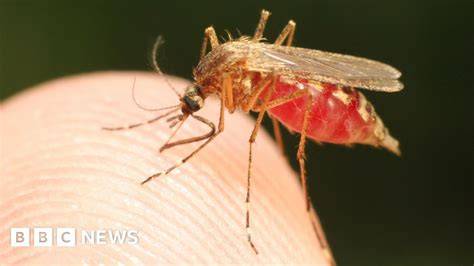Takoradi is grappling with a sharp increase in malaria cases, prompting urgent discussions among residents about the adequacy of current health measures and mosquito control strategies. The surge in cases has raised concerns about whether the existing public health interventions are sufficient to combat the growing threat of malaria in the community.
Malaria, transmitted by infected Anopheles mosquitoes, continues to be a major health challenge in Ghana, with Takoradi experiencing a noticeable uptick in cases over recent months. This trend has highlighted significant gaps in public health infrastructure, especially in terms of mosquito control, and has ignited calls for more comprehensive and aggressive measures.
Health officials are advising residents to take preventive actions, such as using insecticide-treated nets, eliminating standing water, and maintaining cleanliness around their homes. However, some community members argue that individual efforts alone are insufficient. They contend that local authorities must take more decisive action by ramping up fumigation efforts, improving access to medical supplies, and ensuring the availability of treatment at health facilities.
One key concern is the lack of widespread awareness campaigns. Although the government has made efforts to educate the public on malaria prevention, many believe that these initiatives have not reached enough people, particularly in rural and densely populated urban areas. Greater education on the importance of preventive measures and how to avoid mosquito bites is seen as critical to controlling the disease.
Dr. Isaac Mensah, a local health practitioner, emphasized the importance of community involvement in combating malaria. “Community engagement and public cooperation are critical,†he stated. “We need consistent campaigns and more resources dedicated to mosquito control.†Dr. Mensah also called for a coordinated effort between health officials, local leaders, and residents to achieve long-term success in malaria prevention.
The rising number of cases has especially alarmed parents, as children are particularly vulnerable to severe malaria. Schools in the area have also been urged to take preventive measures, such as eliminating potential mosquito breeding sites on their premises.
Social media platforms have become a space for residents to express their frustration, with many demanding more decisive action. One resident posted, “We can’t keep dealing with this every year. We need lasting solutions.â€
As the debate continues, the surge in malaria cases serves as a stark reminder of the need for a unified approach involving both community action and stronger government intervention. Only through collaboration can Takoradi hope to reduce malaria’s impact and protect the health of its residents.
Drop your comments below and follow for more updates!




No comments yet
Be the first to share your thoughts!